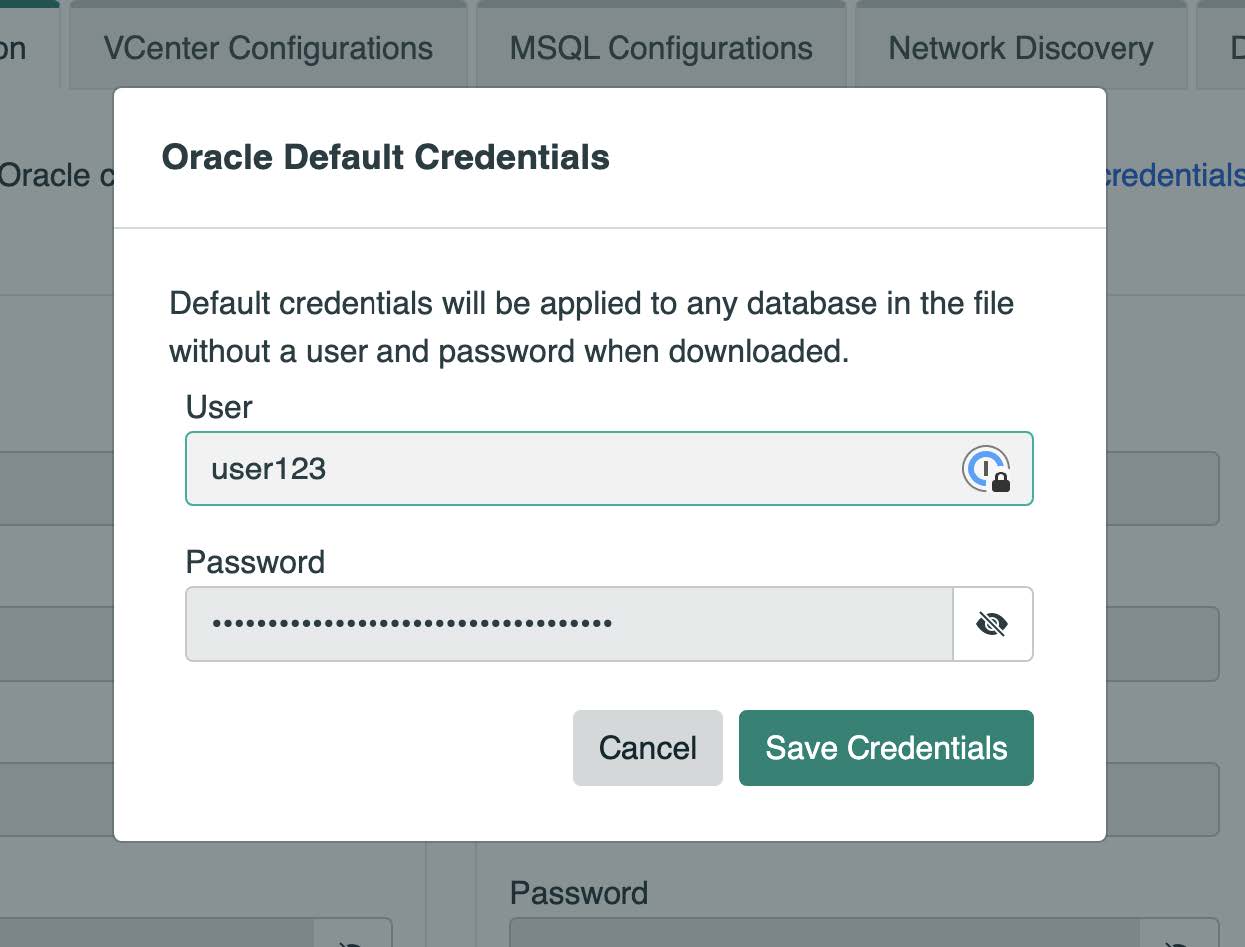New Features
SQL and Oracle Default Credentials
Customers will be able to add default credentials for Oracle and SQL Server configuration files. With this feature, users can type one username and password and apply it to all entries in their file, reducing the number of manual entries. The credentials will be applied once users save the file.

Oracle connection string has been split to server, user, password fields to accommodate the use of default credentials.
User Delegation – running the scripts as a user other than the owner. This is useful for security role separation, as well as running multiple configuration files on the same data gathering appliance.
Allow for the system-wide installation of Node.js, using NodeSource distributions. This allows for a single installation for all users instead of a user-context installation for each data gathering user. The OpsCompass CLI can also be installed for all users as a global module in the system install.
Bulk Load Configuration
Introduced a bulk loading tool scripts/bulk_load.js, that accommodates the creation of a new configuration file with or without default credentials. The tool can also be used to incrementally load new configurations into an existing configuration file (see Config/bulk_sample.json for an example). NOTE: This also facilitates complex testing scenarios for development and was used to test / fix the special character handling as well as to validate default credentials functionality.
Introduced a new support tool support/unix/csv2json.sh (utilizingsupport/unix/csv2json.jq), that demonstrates how to extract configurations from the config file as JSON.
Bug Fixes / Enhancements
- Product website color palette now matches the OpsCompass.com colors.
- Fixed issues caused by using special characters in password, including <space>, back-slash, the @ sign, and $ sign for both Oracle and SQL Server data gathering configurations.
- Fixed issues caused by using a <space> in the username for both Oracle and SQL Server data gathering configuration. NOTE: This is allowed by both Oracle and Microsoft, but specifically not recommended by either of them.
- Compliance score text is enlarged.
- JSON downloaded from configuration files are now properly formatted.